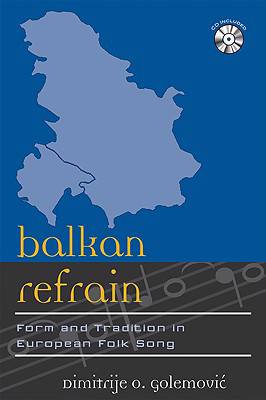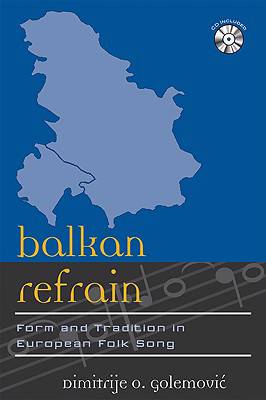
- Afhalen na 1 uur in een winkel met voorraad
- Gratis thuislevering in België vanaf € 30
- Ruim aanbod met 7 miljoen producten
- Afhalen na 1 uur in een winkel met voorraad
- Gratis thuislevering in België vanaf € 30
- Ruim aanbod met 7 miljoen producten
Omschrijving
While the refrain is a frequent and important feature of folk singing, little has been written on it and what it can achieve. Balkan Refrain: Form and Tradition in European Folk Song attempts to establish what refrain actually is and how it can be defined in folk and scholarly practice based on musical examples from Serbia, Montenegro, and the Republic of Srpska, with the aim of finding general rules applicable to refrains in the songs of other nations. The refrain is observed from musical and linguistic perspectives, as well as its religious, social, and economical uses. As refrain is so important in songs, special attention is devoted to its role in the development of singing.
Dimitrije O. Golemovic examines various forms of refrains and their constructive role in singing, and he establishes a terminology based on several characteristics of refrains, such as their role in the song and its place within the melopoetic unit. Golemovic also takes the view that refrain can be a specific "code" in the song that marks its melody, and he supports this with a number of examples, both ancient and more recent. Also discussed is the relationship between refrain and movement in songs accompanying dance and the role of refrain in commercializing newly-composed folk music. The book includes notes, a bibliography, 190 musical examples, and an audio CD of traditional folk songs as well as some examples of newly composed folk songs.Specificaties
Betrokkenen
- Auteur(s):
- Uitgeverij:
Inhoud
- Aantal bladzijden:
- 236
- Taal:
- Engels
- Reeks:
- Reeksnummer:
- nr. 9
Eigenschappen
- Productcode (EAN):
- 9780810867376
- Verschijningsdatum:
- 16/06/2010
- Uitvoering:
- Hardcover
- Formaat:
- Genaaid
- Afmetingen:
- 160 mm x 236 mm
- Gewicht:
- 517 g

Alleen bij Standaard Boekhandel
Beoordelingen
We publiceren alleen reviews die voldoen aan de voorwaarden voor reviews. Bekijk onze voorwaarden voor reviews.








